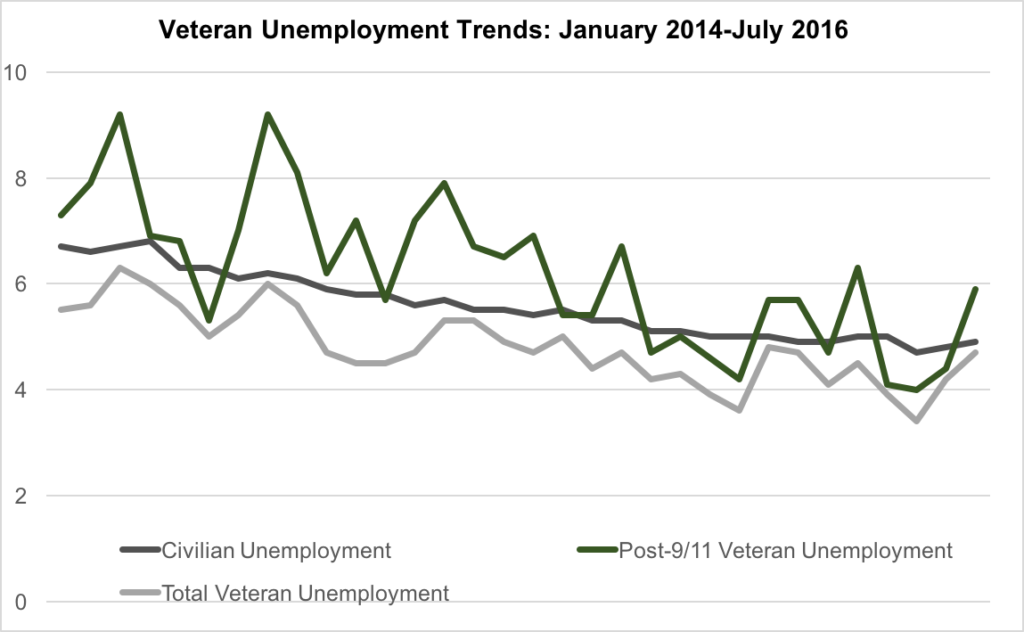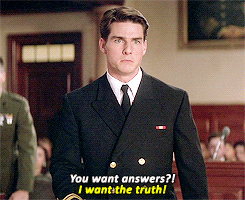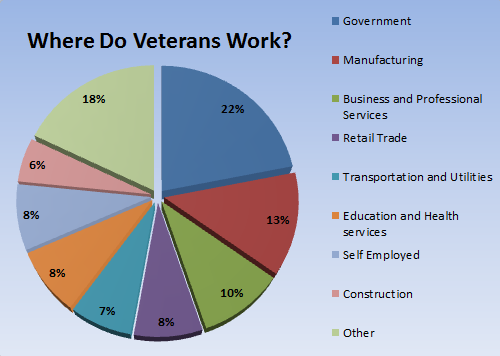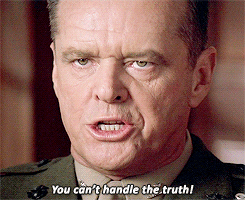 Imagine that some hiring manager wants to open a req right away for some random role, let’s say, a building maintenance technician.
Imagine that some hiring manager wants to open a req right away for some random role, let’s say, a building maintenance technician.
So he calls the recruiter with his request, and the two talk through the position requirements and what kind of candidate the hiring manager wants for this role. You with me?
So, the hiring manager replies to the recruiter:
“Well, I want to hire a veteran in this role. They’ll show up on time, they’ll take care of business and they’ll respect the chain of command. So, let’s get this done.”
The recruiter responds, as recruiters do, with a complex answer to this simple and straightforward hiring manager request:
“Sure thing,” the recruiter says.
“Let me get out my little Veteran Hiring Guide, and then I’m going to train you on the 10 reasons every employer should hire veterans. After that, we’re going to need to spend about 5 weeks reviewing training on resume translations, and how to manage veteran hires. Oh, and I’ll also need you to get certified specifically on how to interview a veteran. Then, we should be good to go!”
Ever wonder why no matter what, we don’t seem to be moving the needle on veteran recruiting? See above.
Catch 22: The Sad State of Veteran Recruiting.
 It’s one thing to wave the flag in theory, but in reality, veteran recruiting takes more than empty words and good intentions.
It’s one thing to wave the flag in theory, but in reality, veteran recruiting takes more than empty words and good intentions.
Unfortunately, it’s work that too few recruiters seem to be willing to put in, which does a disservice to those who served us, to be honest with you. Of course, it’s not their fault that veteran recruiting is, in fact, a pretty big pain in the *ss.
Inevitably – at this point, I pretty much just do it for “fun” – when I post a job description and append any copy associated with my preference to give transitioning military people the opportunity so many need, my inbox is absolutely flooded. Not with veteran job seekers, mind you.
Nope.
Instead, it’s brimming with messages from a cottage industry of consultants and “career experts,” all offering to help me with veteran skills translation, the opportunity to have someone come on site and train my team about why veteran hiring is important, and offers from even more consultants who want to tell me how to retain my veteran hires (mind you, I haven’t even hired them yet).
Still more are notes from people telling me that because I’m not an officially certified veteran recruiter – with the credentials from whatever racket they’re running to prove it.
Veteran hiring is a big business, and the profiteers out there would have you believe that attempting to hire veterans without “training” or certification is somehow an insult to the entire military community.
They’ll gladly wave the flag, except when it comes to putting that patriotism before profit. I’ll let you guess their preference.
What Employers Get Wrong About Veteran Recruiting.

As an industry, we’re on autopilot when it comes to recruiting and retaining “veterans.” Thought leadership on the subject has digressed to baffling cliches and tired aphorisms, and like lemmings, we regurgitate the same well worn lines every time we talk about how important veteran hiring is in the world of recruiting.
This reaction is instantaneous. It’s Pavlovian.
To be honest, our fixation and focus on veteran hiring has actually digressed to paying off what are at best diminishing returns, and at worst, a loss of great candidates due to misinformed or misguided veteran hiring related policies and programs.

It’s slowed down progress in veteran hiring to a crawl, and actually handicaps recruiters in their efforts more than it helps veterans find jobs by focusing on the wrong stuff, honestly. I get it. If you didn’t know any better, you might be tempted to buy whatever those consultants cramming my inbox are selling and spend the time to get training and certification you don’t need to get candidates you can already hire. It’s asinine.
If you’re a recruiter and weren’t in the military at some point in your life, you probably stay away from veteran recruiting, as a rule; it’s scary for civilians to jump into this space looking for talent, networking with transitioning military people or figuring out how to relate to all these “veterans” without looking like a total fraud.
I get it – you’re afraid if you don’t know when the Marine Corps celebrates its birthday, people are going to think you’re a closet Commie or something, right? If you really believe that, then you’re guilty of exactly the same type of bias that creates so many problems so endemic to our industry.
There’s no such thing as a “typical” veteran, which is something we get about pretty much every other protected class (except maybe “Millennials).
Dishonorable Discharge: Veteran Diversity and Exclusion.
 It’s kind of crazy, when you think about it – our misperceptions of veterans are exactly what’s inhibiting many employers from actually engaging with and converting candidates with military experience.
It’s kind of crazy, when you think about it – our misperceptions of veterans are exactly what’s inhibiting many employers from actually engaging with and converting candidates with military experience.
We spend tens of millions a year on veteran recruiting, but we don’t spend nearly enough time educating each other on the myths and misperceptions that plague former military hires.
We’re recruiters, so it’s imperative that we can understand a candidate’s pain points, show empathy for their aspirations and an appreciation for their experience and expertise.
That’s why we’re so rigorous in screening for soft skills, working to find the right fits for our organization capable of performing at the level our Company expects while also determining how well they match that amorphous and ambiguous concept of “culture,” data be damned.
We source, screen, slate and select candidates all day long, and we do so for every person from any other company out there (or even those who are currently “between employers”) who have a high enough threshold for pain that they’re willing to go through the gauntlet that is your online application process.
Everyone, that is, except for veterans.

It’s funny. As badly as we say we want more veteran applicants, the moment we find out a veteran applies, for some reason, we stop. Why? Well…because, you know, they need to translate their skills. Even if those skills don’t really need translation. It’s just that, if there’s military experience anywhere on their resume, they’re immediately labeled a “veteran” and treated with some sort of entrenched employment double standard.
When we see a veteran has applied for our job, we stop. We stop because…well, the hiring manager never explicitly told me whether or not they’d consider a veteran.
We stop because…well, our company doesn’t have a formal veteran recruiting program or any veteran retention or development initiatives in place. We stop because…it’s an excuse.
Oh, by the way: I hear a lot about veterans being a flight risk, but there’s no data to support that veterans are any less likely to leave than their non-veteran peers, since, you know, HR makes data driven decisions all the time and all.
Yeah. If we analyzed any of this, we’d see that we put up imaginary obstacles and excuses, rolling out red tape instead of the red carpet for former military candidates because we’re so preconditioned to respond to them as “veterans” instead of, you know, qualified candidates.

Those perfunctory 6 seconds we normally spend scanning a resume are forgotten, and that there’s no translation needed in a resume tailored explicitly for the job becomes extraneous to the fact that veteran applicants require some sort of specialized knowledge or skill to consider for positions, some sort of program to successfully recruit or retain them.
The fact is, if we overlooked their veteran status for a second, we’d see resumes that are probably far more professional than their civilian counterparts, considering the countless organizations out there – literally tens and thousands of them – whose only purpose is to help transitioning service members move from the military to the workforce as smoothly and successfully as possible.
These organizations work with veterans one on one to teach them interviewing skills, how to navigate the hiring process, professional presentation skills and the fine art of crafting a resume that’s going to not only get read, but get their foot in the door as a competitive candidate for your company.
They provide on-the-job training, assist with information and give advice, and ensure that veterans are ready before they ever hit “apply” – but even when those perfectly groomed candidates land at your feet for whatever job opportunity you’re advertising, we stop.
And we tell them to go back, to do it all over again, to “translate,” to do it our way, even if they already are. You know, just because.
Can You Handle The Truth About Veteran Talent?
 Look. The fact is, “veterans” are a pretty huge and diverse population.
Look. The fact is, “veterans” are a pretty huge and diverse population.
“Veteran” isn’t a functional skill, nor is it measurable in the sense that one can be more skilled at being a veteran than someone else who happened to have served.
You either are, or you aren’t. It’s a diversity label that needs to be filtered in order to actually find what we’re looking for – because most of the time, we’re sourcing and recruiting candidates based exclusively on functional need, not diversity status or by their protected class.
Which is why even top veteran talent often gets overlooked during most proactive sourcing and pipelining efforts.
Instead, veterans are consigned to some formal program or encouraged to take part in an initiative or join a “talent community” that for some reason exists only for them, treating them as some sort of special, separate class of job seekers that must be treated differently.
We do this largely with good intent, but let’s face it, the fact that we so explicitly talk about “veteran recruiting” programs and policies is inherently discriminatory. If we’re honest, if we were caught doing this solely based on skin color, religion, race or any other protected class, we’re not passing go on our way straight to HR Jail (or a compliance audit).
But for veterans, for some reason, it’s considered OK to take a one-size fits all, prejudiced approach to recruiting and hiring. Of course, if that approach worked, we probably wouldn’t still suck at attracting and retaining veteran talent.
Part 1 of a 2 part series.
About the Author:
 Dan Piontkowski is a fun loving guy that has spent too long in the recruiting and sourcing world waiting to figure out what to be when he grows up.
Dan Piontkowski is a fun loving guy that has spent too long in the recruiting and sourcing world waiting to figure out what to be when he grows up.
He’s done time enlisted in the Marine Corps, a graduate of the Naval Academy, a commissioned naval officer, developed robust veteran hiring initiatives at big companies and still doesn’t know what a Space & Missile officer in the Air Force does.
He likes Sugar Free Monster because it’s healthier than the regular stuff.
Dan isn’t on Twitter, but you can connect with him on LinkedIn.
Recruit Smarter
Weekly news and industry insights delivered straight to your inbox.





